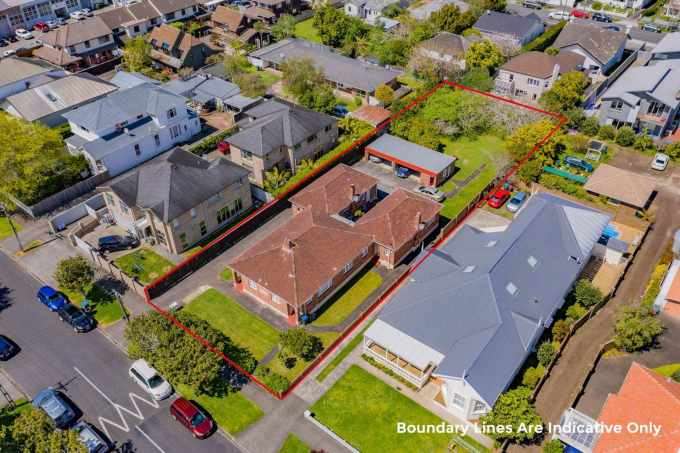A grand two-storey villa that had been converted into flats has sold under the hammer for $4.425 million.
53 Brighton Road, in Parnell, Auckland, was snapped up by an investor after strong competition at the Bayleys auction.
READ MORE: Find out if your suburb is rising or falling
Eight bidders had competed to secure double grammar zone property, which sits on a 1113sqm section and has an annual rental income of $150,000 from five flats and a separate cottage.
Start your property search
Bayleys agent Fleur Denning, who marketed the property with Amanda Maloney, says the result was outstanding, with bidding starting at $3.25 million.
“The bidders were a mix of investors and owner-occupiers,” she said.
“By the end of the auction we had three very competitive bidders in action.”
The yield on the property was a low 3.39 percent, and an indication that investors are willing to pay big sums to get back into the Auckland market.
Last week a buyer paid $2 million for a home and income property at 2 Mountain Road in Mt Wellington, while earlier this month an investor shelled out $7.06 million for an eight-bedroom brick and tile property at 12 King Edward Avenue, in Epsom. The yield on the latter was 1.42 percent.
Investor activity in New Zealand has increased in recent months but could intensify over the summer.

12 King Edward Avenue, in Epsom, sold to a developer for $7.06 million. Photo / Supplied
Economist Ed McKnight, who works with property investment advisory firm Opes Partners, says investors are trying to get the best deal following the Reserve Bank’s announcement that it was examining bringing back the loan to value ratio restrictions in March.
While some banks have already upped the deposit requirements for investors to 30 percent, developers and investors will be looking to make purchases in the months ahead.
“We are seeing investors looking to get finances sorted and take action before these restrictions come in in March,” he said.
Auckland properties that offer income or development opportunities would likely attract more attention than usual, he said.
“With median house prices in New Zealand skyrocketing, every unit a developer builds will be worth an extra 15 or 20 per cent. It makes these projects very profitable.”
Even if the yield on an investment rental property was low, it would likely cover the mortgage costs while the investor decided how to increase the income flow.
When the land isn’t zoned for a development, and the yield is relatively low, there are other ways to bump up the income on the existing rental, McKnight said.
“If someone is investing over $4 million into a property, they are likely to have some ideas around what they are going to do with it to get the yield up. It may be renovation, reconfiguration, adding an extra unit or finding other ways to bring that value up,” McKnight said.



